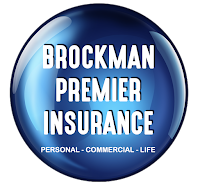 Preparing for Hurricane Damage!
Preparing for Hurricane Damage!
Because nature is unpredictable,
let us help you prepare for the worst and sleep a little easier. These valuable
tips can proactively keep you, your family, and your possessions as safe as
possible during a hurricane.
It’s good to review
your policy with your agent for
a detailed explanation of your coverage as it relates to natural disaster
catastrophes.
We know the dramatic
effect hurricanes can have, both the initial wind and rain and the floods and
devastation that follow. There are steps you can take to stay safe and reduce
damage to your property in the event of a storm.
Note that neither
home nor business insurance covers flood damage from a hurricane, including
floods from storm surges. Your local independent agent can help you purchase a
policy through the National Flood Insurance Program.
Before a Hurricane 
*Install storm shutters.* Remove yard debris that could become flying missiles.* Have a safe place to park your cars and/or store your boat.* Make sure you, your family and/or employees know how to shut off utilities.* Look through your emergency kit to ensure it is fully stocked and up to date with necessities for all household members, including pets.* Back up computer records and store them at least 50 miles off site.* Gather important papers to take with you if you must evacuate, including inventory lists and insurance information.
It’s good to review
your policy with your agent for
a detailed explanation of your coverage as it relates to natural disaster
catastrophes.
We know the dramatic effect hurricanes can have, both the initial wind and rain and the floods and devastation that follow. There are steps you can take to stay safe and reduce damage to your property in the event of a storm.
Before a Hurricane 
During a Hurricane
* Know your community's evacuation plan and, if asked to evacuate, do so immediately.
* Stay inside and away from windows, skylights and glass doors. Avoid elevators.
* Avoid washed out and wet roads that can hide downed electrical lines or underlying currents that can carry your vehicle away.
After a Hurricane
Water is a major
cause of damage after hurricanes. The longer your house is exposed to water,
the more damage you’ll see to your roof, ceiling, walls, and floors, as well as
any personal belongings inside. After the storm has passed, it’s important to
dry out any water damaged inside your home.
* Open windows and doors to allow air to
circulate and speed up the drying process.
* Board up broken windows and doors.
* Cover roof damage with tarps or plywood.
* Save receipts for any temporary repair expenses.
* Cover broken car windows with tarps or plastic sheeting.
* Move any wet items to a dry place
* If possible, place any damaged items in a safe, secure area where they can be inspected later
The most important thing is to make sure you and your family are safe.
Things can be replaced.
Have other questions? Need a quote?
* Visit brockmanpremierins.com
* Call 877-987-8683
*Email quote@brockmanpremier.com
·
·






















